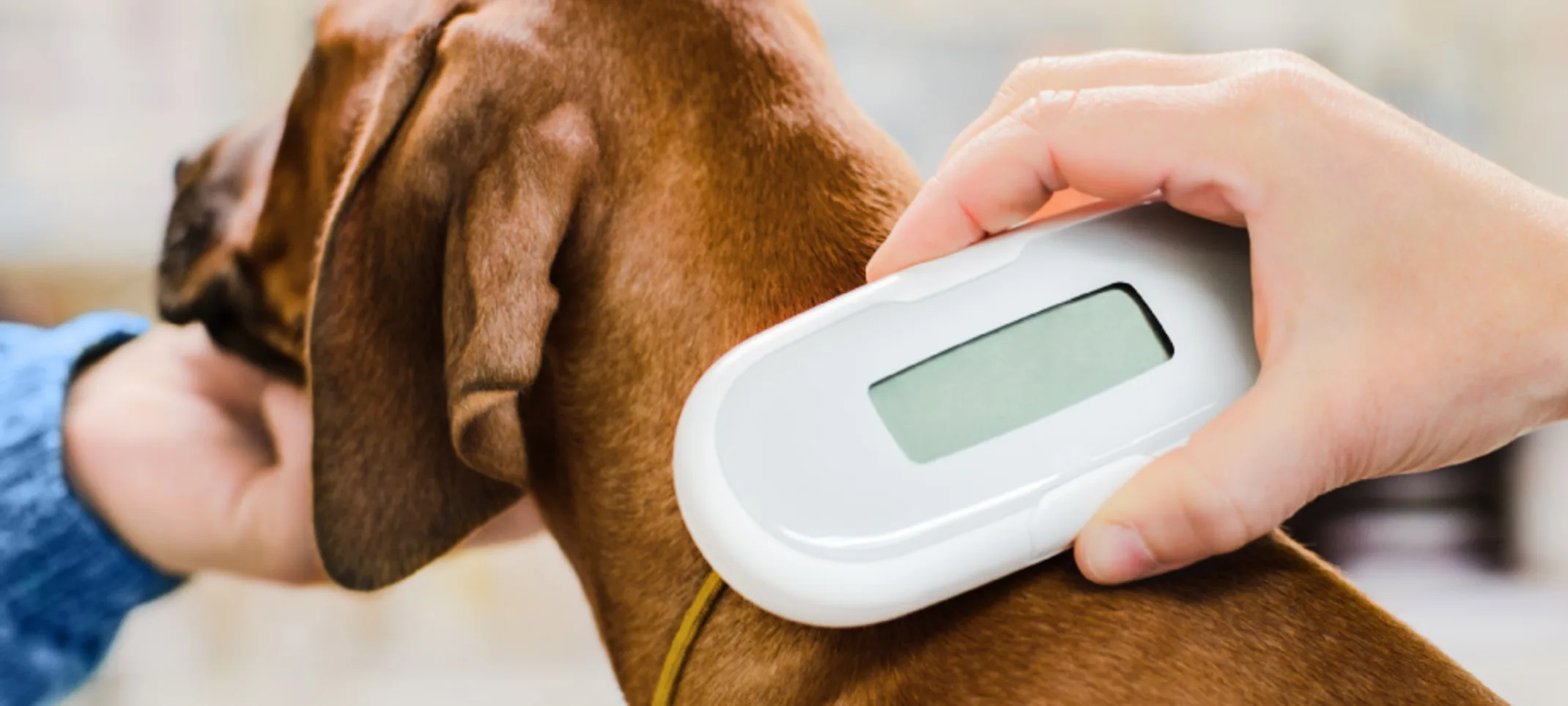Las Posas Veterinary Medical Center
Microchipping
Imagine if your dog or cat got lost. You’d want to give him or her the best chance of getting home. With microchipping, you can.
Microchip identification is the most reliable way to reunite lost pets with their owners.

Overview
Microchip identification helps return an estimated 8,000 lost cats, dogs, and other animals to their homes every day. Pet ID chips are the most reliable way to reunite pets with their owners and provide peace of mind.
Why should I microchip my pet?
Microchipping is a safe, permanent way to identify your pet in case he or she becomes lost. It is also required if your pet will be travelling internationally, as it is the only recognized form of identification for your pet. A microchip, which is a tiny device about the size and shape of a grain of rice, is placed just under the loose skin at the back of the neck. When a lost dog or cat without an ID tag is brought to any veterinary hospital/clinic or to the shelter, a handheld microchip scanner will be used to check for a chip. If the pet has one, it will transmit its ID number to the scanner via a low-frequency radio wave. (In the photo above, Krystle is helping hold “Tilly” while Dr. Garrolini scans for her microchip.) The veterinary hospital/clinic or shelter then contacts a microchip database company such as PetLink.net, retrieves the pet owner’s contact information and calls the owner.
Even the most responsible pet owners can’t always guarantee their pet won’t get lost. A leash could break or slip out of your hand, a pet could push through a screen door or window, or a contractor or friend might accidentally leave a door or gate open.
We recommend that you use a microchip, along with a collar and ID tag, to identify your pet. An ID tag is still a reliable identification method. Pets that have tags with current contact information are more likely to not end up in shelters and tend to get home faster than those without tags. However, collars and ID tags aren’t permanent and can be removed (overnight or for grooming); pets can also lose them. With a microchip, your pet will have a much better chance of being identified and returned to you. Pets without microchips that end up in shelters may be adopted out to another family or even euthanized. Also, it goes without saying that it is important to make sure your current contact information is in the microchip database.
Although we hope your pet never becomes lost, we want you to be prepared. Please contact us to schedule an appointment to microchip your pet.
